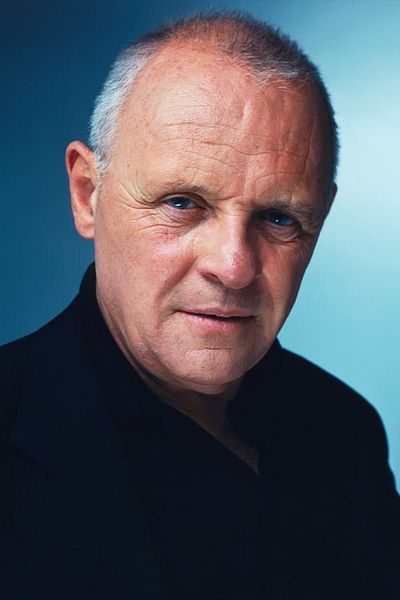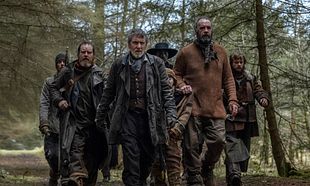Nicholas Winton (Johnny Flynn / Anthony Hopkins) is a retired financial executive who has been charged by his wife (Lena Olin) their home. In doing so, Nicholas reflects on his younger years and a key moment of it when he helped to save the lives of hundreds of Jewish children from escaping the Nazi invasion of Czechoslovakia. Having lost contact with them after so many years, Nicholas attempts to reconnect with them with the help of a television show...
While 'One Life' is invariably going to be associated with the viral clip of the real-life incident where Nicholas Winton was confronted by the children he saved, its best moments are not when we see this happen or indeed the efforts it took in the past. For much of the movie, it follows what is essentially a procedural and methodical retelling of how the Kindertransport took place, with Johnny Flynn playing a younger Nicholas Winton navigating the murky streets of pre-war Prague. Three quarters of the story plays like a relatively solid World War II drama, with Helena Bonham Carter and Ramola Garai playing the women in Winton's life who helped put the Kindertransport in motion. It's grimly thrilling stuff, almost like a spy chase at some points, but it's when it flashes forward to Anthony Hopkins that it gets really interesting.
Hopkins' characterisation of Winton is a study in withholding, not a million miles away from 'The Remains of the Day'. It's that thing of being impossibly restrained, but here it's done out of total humility. We find that Winton isn't necessarily pushing down the memories of his extraordinary humanitarianism, but rather that he is haunted by his failures and the inability to help more. This, of course, was a pivotal scene in 'Schindler's List', yet in 'One Life', it's examined in far greater detail. How can you resolve both a great and terrible thing all happening at once? What does it do to a person to carry that around for the vast majority of their life? Hopkins is able to channel all the anguish into small, delicate moments where he is able to hold attention on the slightest look and movement. As much as we associate him with outsized performances, be it Hannibal Lecter or Captain Bligh from 'The Bounty', his best work is often the subtle and subdued kind.
As a director, James Hawes has a deep understanding of this. Moreover, Hawes' career as both a documentarian and a TV director means he's able to shift easily between a procedural retelling and a more involved, emotional texture pretty easily. That being said, you do get the sense that 'One Life' probably have worked just as well - if not better - as a two-part BBC drama miniseries, with one of them solely following the Kindertransport and giving Johnny Flynn a chance to shine beyond carrying that end of the story. It's a shame, as Flynn is a gifted performer, as is Ramola Garai, and both have more than enough screen presence to hold it longer than they're given.
While it may be held back by a somewhat conventional approach, the performances by the cast are anything but conventional, and Hopkins is assured of a place in the coming Oscars race on the strength of his performance.



















































































